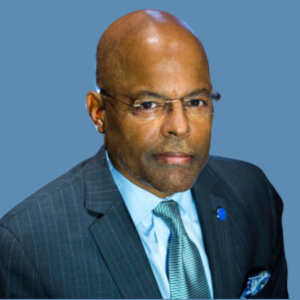In a recent article Integrated Employment, Employment First and U.S. Federal Policy, Kathy Martinez, Assistant Secretary for Disability Employment Policy, U.S. Department of Labor, Office of Disability Employment Policy, stated,
“For almost forty years, U.S. policy has steadily advanced the idea of presumed employability for all people with disabilities, including those with significant disabilities. The time has come for us to build on this momentum to advance policy and practices so that integrated employment is the norm rather than the exception for all people with disabilities.”
KRA Corporation has long been an active proponent of this philosophy, advocating for those challenged by disabilities, through years of service to the Department of Health and Human Services’ Administration on Development Disabilities (ADD) and the Department of Education’ National Institute on Disability and Rehabilitation Research (NIDRR).
For the ADD, the company managed the National Information Center on Developmental Disabilities; worked on-site at ADD operating the Developmental Disabilities Program Resources Management Project, which received the Secretary’s Outstanding Distinguished Services Award for citizen-centered customer service in responding to requests for information from the public; provided event- and publication-management services for four annual ADD Commissioner’s Forums, and more than 30 ADD Headquarters & Regional Meetings, Multi-Cultural Committee Planning Meetings, and Forums for Parents of Children with Developmental Disabilities.
For the NIDRR, KRA operated the National Rehabilitation Information Center (NARIC), responding to thousands of requests each month for information, publications, and resources on disability and medical rehabilitation research. KRA also designed and developed several award-winning websites/pages for NARIC.
The topic of disabilities in the workforce, and the practices that govern it, has become more of a hot button issue of late, having received some significant media coverage. In a recent Rock Center with Brian Williams video report on NBC, the working implementation of Section 14(c) of the Fair Labor Standards Act was explored. Under section 14(c), provisions made to eligible employers (as designated through a certificate) by the Department of Labor’s (DOL) Wage and Hour Division authorize the employer to pay wages that are under the Federal minimum wage to disabled workers for their services.
The DOL website elaw advisor on Section 14(c) stipulates that “a worker who has a disability for the job being performed is one whose earning or productive capacity is impaired by a physical or mental disability, including those relating to age or injury.”
The practice of separating disabled workers into sheltered workshops and the abuses thereof has come under increasing scrutiny in recent years—most notably at a Federal level.
A class action suit brought against the state of Oregon by 2,300 Oregonians with developmental disabilities claiming that the state is in violation of the Americans with Disabilities Act (ADA) has seen the intervention of the Justice Department.
In another more recent case in Rhode Island, the non-profit organization Training Thru Participation (a state-certified workshop) and the Harold A. Birch Vocational School were found in violation of the ADA, drawing the attention of the Federal government. As a result of the ensuing settlement, Rhode Island is eliminating sheltered workshops and is adopting the Employment First policy.
KRA remains committed to advocating for all sectors of the workforce, despite limiting factors and obstacles. We applaud this move by the Federal government, or any institution that advocates for integrated employment commensurate with an individual’s interests and abilities regardless of impediment.
While the KRA team appreciates the efforts of those organizations committed to providing opportunities to those with disabilities, we feel that the goal should always be to prepare workers for the marketplace and to arm them with the skills, whenever possible, to achieve their full potential. It is a philosophy that KRA has adhered to and put into practice for more than 30 years, and will continue to actively advocate for all our customers and partners in the communities we serve.


 Dr. Boone’s 20+ years’ experience in the industry is extensive and her expertise in private-, public-, and non-profit sector workforce-services organizations is unparalleled, particularly in the Baltimore–Washington Metropolitan area.
Dr. Boone’s 20+ years’ experience in the industry is extensive and her expertise in private-, public-, and non-profit sector workforce-services organizations is unparalleled, particularly in the Baltimore–Washington Metropolitan area.






















